Meet the women who do their best for the Earth everyday
Five women who do their best for the Earth everyday share their journeys and give some insight into how to live in a more considerate way for the planet on a daily basis

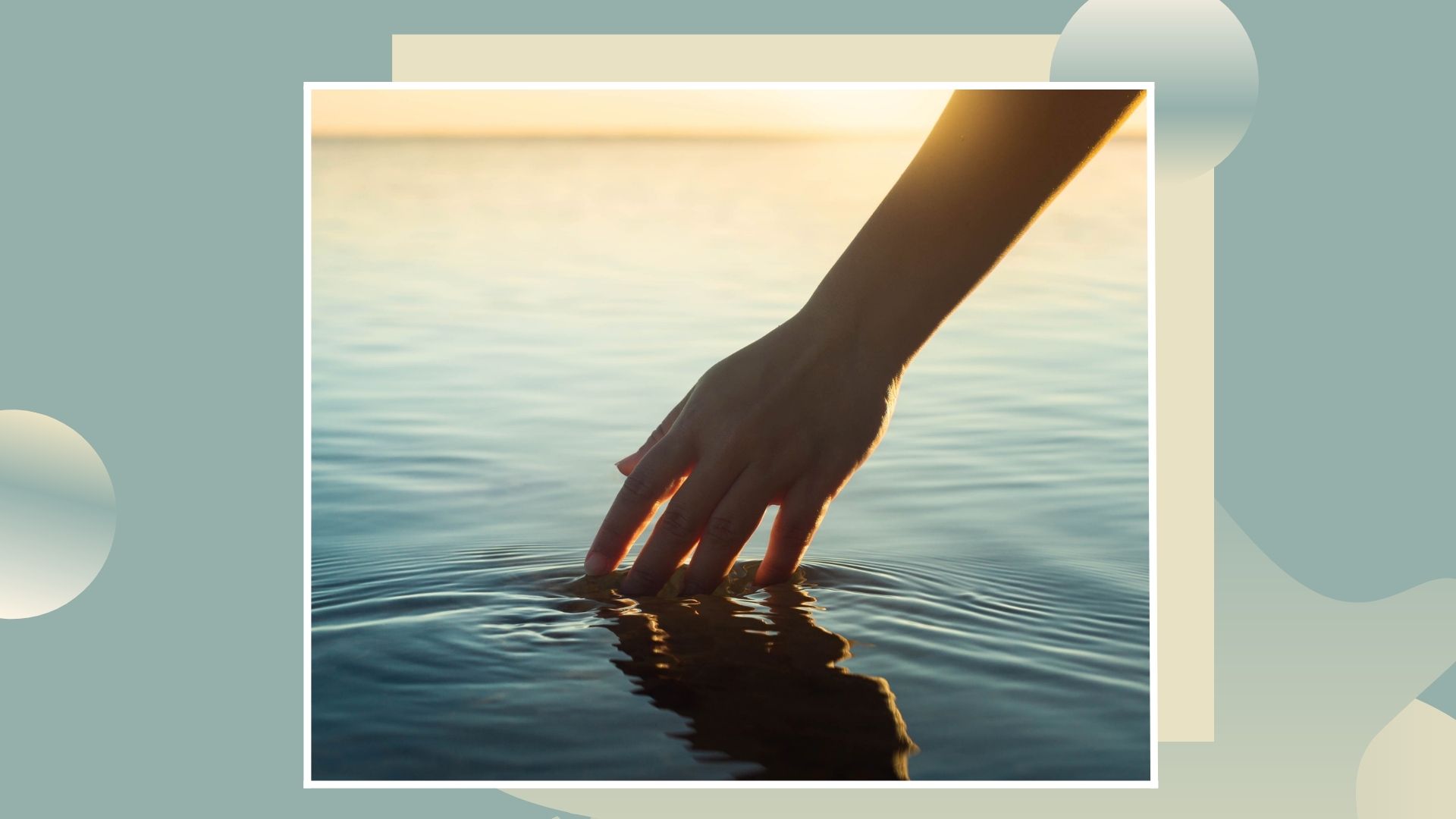
To mark Earth Day, we spoke to five young women about how they are doing their best to save the Earth.
Doing the best for Earth everyday is something that many of us strive to do—whether it's with our dietary choices, recycling efforts, waste reduction, eschewal of single-use plastic, fashion decisions like opting for sustainable jeans over harmful denim, choosing sustainable beauty brands or simply having an awareness of the environmental impacts of our actions. And it shows in changes that we can see happening around the world.
According to The Vegan Society, 88% of food industry practitioners globally said that they expected demand for plant-based products to increase throughout 2021, with 60% believing that consumers' objectives were to be more environmentally friendly. Last year, the EU Startups report revealed that UK clothes rental app By Rotation received funding to expand to the US, where they launched back in February, after becoming one of the fastest-growing fashion retail platforms, with a year-on-year user growth of 550% and monthly rental revenue growth of 1900%. A 2021 report by Statista also found that 92% of UK adults were concerned about plastic pollution and more recent statistics showed that the reusable water bottle market in the US is projected to grow by $1.5 billion between 2018 and 2025. And these are just a few examples.
But when it comes to making big life changes towards sustainable living, sometimes trepidation, overwhelm and fear can hold us back. There are so many different paths towards more eco-conscious living that we can take and so much of what we do as part of our natural existence can have a negative impact on the Earth—so sometimes it can be overwhelming to identify a starting point or any efforts that we do make can be shrouded in a sense of futility.
So we chatted to five incredible women who strive to do their best for Earth everyday about how they started their journeys, what it's been like along the way and how they stay motivated to continue to live in a manner that's more considerate towards the planet. One important thing they have in common—not one of them can do everything. Each of them is traveling down their own path of eco-conscious living and doing the best that they feel they can do in their own lives to make a difference.
How five women do their best for Earth everyday
Meet the woman who led the movement into breaking up with fast fashion, the woman helping society to go plastic-free, the woman working to tackle food waste, the woman who created an alternative food packaging to plastic wraps and the everyday woman who is trying her best to make a difference in any area where she feels like she can.
The one who got us all to break up with fast fashion
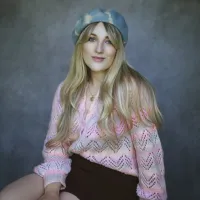
LAUREN BRAVO
Writer Lauren Bravo wrote a book on how to quit fast fashion after she realized the negative environmental impact of the industry
Changes made to help the Earth: Quit fast fashion, adopted vegetarian diet
Ongoing efforts: Tries to minimize food waste, tries to reduce plastic use
Life ethos to do better for the Earth: Trying to tread a little lighter on the planet and do a little better every day
The biggest change I've made for the Earth was ending my toxic relationship with fast fashion, back at the start of 2019. I'd always loved clothes, but I'd reached a point that I knew was completely unsustainable—for the planet and for my sanity and storage space. I felt like I was on a treadmill of trends, perpetually shopping for the next quick-fix item but never reaching the end of the 'must buy' list. As a fashion writer, I was learning more and more about the environmental impact of the textile industry and the humanitarian cost of our clothes, and on a personal level I realized that all those hauls just weren't making me happy. So I cut down my high street purchases, started buying more secondhand and small independent brands, and then finally I challenged myself to a whole year buying nothing brand new. And I never went back.
I definitely find it difficult sometimes! I still have to fight the urge to shop all my feelings better, and I still have those 'I hate all my clothes' meltdowns from time to time—although far less frequently than I used to in the old days. But it all got so much easier once I realized that dressing sustainably didn't need to be about abstinence and deprivation, it's not about being po-faced in a hemp sack for the rest of your life. When you focus on the love of clothes and the stories behind them, taking care of clothes you love and styling them and actually wearing them again and again and again, it becomes a really joyful, positive thing. If you're getting your dopamine hit from wearing a brilliant outfit with a great story behind it, you don't feel that need to shop as much.
But I'm certainly not any kind of perfect eco-warrior; there are still plenty of unsustainable habits I need to work on—there's a chapter at the beginning of my book called 'Notes on Being Terrible', in which I hold my hand up and admit I'm in no position to be lecturing anybody. I certainly still have other indulgences that could be considered bad for the Earth—who the hell doesn't? I think it's so important that we don't demand perfection from each other—we won't get very far by shaming people (except maybe billionaires). We need businesses to shoulder the biggest responsibility, not individuals—and instead of overwhelming people with the awfulness of it all, we need people to feel galvanised to make whatever changes they can, right now.
A post shared by laurenbravo (@laurenbravo)
A photo posted by on
That said, I do try my best to help educate others and encourage people to make changes where they can. I wrote a whole book to try to encourage people to quit fast fashion! But I try to make everything I write and every conversation I have as accessible and non-judgemental as possible. And I recognise that everyone is coming at it from a different place, with a different set of privileges, and so sustainability won't look the same for everyone. There is no silver bullet solution, it's not a one-size-fits-all thing. We all have to make the changes that work best for our budgets, our bodies and our lifestyles. But I do think the majority of people can change in one way or another, whether it's switching to secondhand, supporting small brands, repairing and upcycling or just buying less and looking after what we already own.
If you’re looking to make changes, just remember that it doesn’t have to be all or nothing—that very rarely works. Be realistic—but also, be ambitious for yourself. We're so much more adaptable than we think we are. I didn't think I'd survive three months without fast fashion; now it's been three and a half years and I'm happier with my wardrobe and more confident in my personal style than I've ever been.
It’s important to recognise that the problem is so much bigger than each individual lifestyle (again, unless you're a billionaire), and we need to be shouting, campaigning and voting for BIG changes—from governments, from corporations and from the 1% of people who are driving us further into this mess. Whenever I feel despairing, I sign a petition or write to my MP.
Buy Lauren's book 'How to Break Up with Fast Fashion' here
The one making it easier to go plastic-free
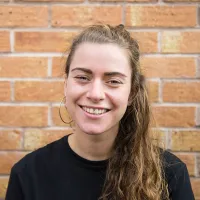
CHARLIE GILL
Charlie created an online shopping platform full of everyday plastic-free alternatives, after she realized how challenging it can be to get hold of them
Changes made to help the Earth: Gone as plastic-free as possible, adopted vegetarian diet, quit fast fashion
Ongoing efforts: Tries to reduce her energy and water consumption
Life ethos to do better for the Earth: It’s all about progress, not perfection
I’ve made many changes for the Earth in both my personal and professional life. I started trying to cut out plastic in early 2018, after seeing awful plastic pollution when living in Nepal—and their lack of a waste-management system to be able to cope. Since then, most of my inspiration comes from my empathy with people. I want to see climate justice for everyone on the planet and if my small changes can help make that happen, it’s impossible not for me not to try. For me, the journey started with a shampoo bar but this quickly moved on to all toiletries, skincare, makeup and kitchen products. It became apparent that it wasn’t easy to implement this in all areas of life though, as there were so many different independent eco brands that I had to research—and I also had to pay for each individual product to be sent to my house. It was this realisation that led to Life Before Plastic, the online plastic-free shop that I set up with my sister Trina in 2018. We wanted to make being eco- and plastic-free easy with a one stop shop for all household items.
I’ve by no means cut out plastic from my life completely, but I’d say I’m ‘imperfectly plastic-free’, as I’ve cut out as much plastic as possible. It was definitely difficult at first because the options weren’t readily available, but now it’s a lot easier, as there are swaps for pretty much everything. I couldn’t imagine ever using an aerosol antiperspirant or plastic toothbrush again. It can be difficult to stay environmentally-conscious, but most factors tend to become second nature—like if you live a plant-based lifestyle or shop only secondhand. Some steps can be harder though—like cycling when it’s raining, or buying something more expensive because it’s not wrapped in plastic. In those instances, I think it’s my eco-guilt that gets me through it. I usually try to think of the environmental cost and factor that into my decisions—so if a packet of pasta costs 50p extra because it’s not wrapped in plastic but instead comes in fully recyclable and compostable cardboard and won’t end up in the environment forever, it works for me!
A post shared by Life Before Plastic (@lifebeforeplastic_)
A photo posted by on
I used to eat meat on average once a day for my main meal and I’d shop fast fashion and buy all my toiletries from the supermarket in plastic packaging. But now, I follow a vegetarian diet to try to reduce my environmental impact. I made the switch to counteract the meat consumption of those eating meat everyday and now I wouldn’t ever look back. I’ve discovered so many incredible recipes and cuisines by going veggie. I also always try to buy local, seasonal food—including getting a veg box from a local farm!
There are always ways to improve though. I do eat a plant-based diet around 80% of the time, but I still eat some dairy products. While I try to cut these out as much as possible, I also don’t beat myself up if I do eat an animal product by mistake—it’s all about trying your best. Don’t beat yourself up if you can’t buy something without plastic, or you don’t have time to get public transport. Every change that you make prevents that little bit of plastic or carbon emission from entering the environment. Start small and celebrate the small wins. If you want to cut out plastic, start in one room and slowly change products as the non-eco ones run out. Celebrate if you eat a plant-based meal instead of meat and tell everyone you know. The more we all continue to talk about the changes we make, the more it will become normalized.
I believe that leading by example is a great way to encourage others to make environmentally friendly swaps. Through Life Before Plastic, I share all of my experiences and give tips on how to make changes and I try to educate others as much as possible through social media, blogs and just being there on the other end of an email. If you can share your experiences with just five people and they go on to share with five others, just imagine the ripple effect.
Visit Charlie's online retail platform Life Before Plastic here
The one on a mission to reduce food waste
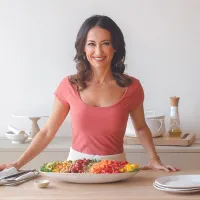
MAREYA IBRAHIM
Mareya Ibrahim works to reduce food waste through sharing ways to prolong food life and use all parts of produce
Changes made to help the Earth: Reduces food waste through sharing ways to use all parts of produce and created a product to prolong life of fresh produce
Ongoing efforts: Tries to eat a mostly plant-based diet, opts for organic and Fair Trade where possible, makes conscious decisions about meat intake
Life ethos to do better for the Earth: Live like your children are inheriting your legacy
I’ve been an environmentalist for most of my life, so ‘precycling’ (thinking about what I’m doing before I use something) has been a lifestyle practice for over 30 years for me. I believe the biggest impact I can make—and any of us can make—for the Earth starts in the kitchen. Before I use an ingredient, I think of all the ways I can use it so that nothing goes to waste—from the peels or skin of fruits to the leaves of celery and broccoli stalks, I use it all. I won’t throw anything out, but instead will puree it, freeze it or make something with it (like a banana bread where I use the whole banana, including the peels). I also shop locally as much as possible to reduce my carbon footprint and I eat a largely plant-based diet. I even developed a product called eatCleaner, which helps prolong the life of fresh produce so that it can last up to five times longer than it would otherwise, as it really matters to me that we keep food out of landfills.
It all stems from my love for nature. It’s where I find my solace, peace and feel the most connected with my creator. I’m also a licensed PADI scuba diver and have noticed first-hand just how devastating the impact of global warming is on the ocean, with the bleaching of coral. It really hit me hard around 13 years ago, when I noticed that the same coral reef that I visited 10 years previously in Hawaii, that had shone bright with all of the colors of the rainbow, was now white and lifeless. I was shocked and saddened beyond belief—I actually cried for hours after seeing it so up close and personal. I want my great, great grandchildren to have the same opportunities I have had to experience the world of nature and the magnificence of God’s creations and sadly, if we don’t make big changes soon, that may become a disappearing reality. I had always been conscientious, as I have been in the natural products industry for over 27 years and there is a big emphasis on environmental conservation, but seeing it in person was what partially prompted me to start my product line.
A post shared by Mareya Ibrahim (@chefmareya)
A photo posted by on
I understand that making changes might be challenging for some, but for me, I think it’s not difficult to honor the environment with your actions when you have a reason. Connect with your ‘why’ and that will help take you so much further in your journey. It’s all about doing your best.
I think that making a change is only as difficult as you allow yourself to make it. Changing your eating approach may feel unnatural at first, but it may help you feel so much better health-wise and in knowing that you’re doing your part to eat sustainably to make a lasting impact on our Earth.
Find Mareya's eatCleaner product here
The one helping to reduce plastic food packaging use
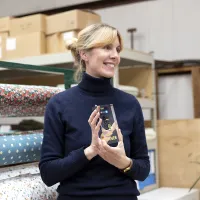
FRANCES BEER
Frances Beer started a company that designed beeswax wraps—a sustainable alternative to cling film—in order to reduce plastic waste
Changes made to help the Earth: Created beeswax wraps to reduce cling film use
Ongoing efforts: Shopping locally, recycling
Life ethos to do better for the Earth: Enjoy but remain conscious
I have always been conscious of finding ways to live more sustainably and when I trained to be an acupuncturist, I really started to become aware of the impact of plastic—not only on the planet but also on our health (especially as women). I started to look at ways to make small changes to my daily habits and one product that became increasingly obvious as having no suitable alternative, was cling film. We used it all the time to help keep food fresh and avoid waste, but I learnt that the plastic used was so damaging and it was being wasted at great volume.
So, blending my passion for crafting with my love of the planet, a journey to create a product that was Earth-friendly, useful and beautiful began—and beeswax wraps were born. After some demand at fairs and through friends, I founded the business, The Beeswax Wrap Co. in 2017. I’m incredibly proud of our little business, as since we began we have prevented hundreds and thousands of metres of cling film going to landfill and oceans—and we’ve also worked with British beekeepers around the UK to support them. From day one, my mission was to create a company as sustainable and eco-friendly as possible, so I work hard to maintain a sustainable supply chain and encourage our suppliers to make eco-friendly changes. I’d love if single use plastic could be banned within the next few years. The thought of using something once and throwing it away is awful when we know what an effect plastics have on the earth—especially when it breaks down into micro plastics.
A post shared by The Beeswax Wrap Co. (@thebeeswaxwrapco)
A photo posted by on
Life is all about balance and I think there can often come some shame or judgement from people who would describe themselves as ‘eco-friendly’. But to me, any step that anyone can take to live their life more sustainably is amazing! So you might drive a diesel car but then recycle or reduce your meat intake or swap out cling film for beeswax wraps. We live in such a fast moving world and it would be an incredibly difficult and full-time task to be 100% eco-friendly all the time. Life is busy and harder than ever right now, so I think if you choose something to commit to, that’s an incredible start. I try to encourage everyone to make small swaps in their day-to-day lives. For example, if a family of four, who use clingfilm to wrap four sandwiches every day switch to using the beeswax wraps, they would save over 500 metres of cling film from going into landfills and oceans each year. And if just 10% of people in the UK swapped from washing up liquid to solid bars, we could save 80 million plastic bottles from production a year.
I understand there is always going to be room for improvement but if I keep striving and making sure I can make small changes and reduce my (and others’) plastic consumption, then I’m doing a good job.
Visit Frances's The Beeswax Wrap Co. here
The one trying her best where she can
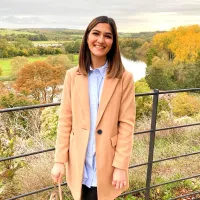
NINA BADKAR
Fashion merchandiser, Nina Badkar, tries to do her best she can in areas of her life where she feels she can make a difference
Changes made to help the Earth: Stopped eating all meat and fish, avoids fast fashion, shops primarily secondhand or independent brands
Ongoing efforts: Reducing use of single-use menstrual products and working towards going vegan
Life ethos to do better for the Earth: Don't put pressure on yourself to be perfect, just do the best that you can
My journey towards living more intentionally for the Earth started in January 2020. At first, it really wasn’t on purpose. I tried Veganuary just to see if I could make it through the month—I totally wasn’t expecting to, as I was SUCH a carnivore before—but after I actually managed to do it, I realized I could probably continue it long-term, so thought ‘why not make the change’. It was the initial 2020 dietary shift that actually led me towards making bigger changes in my life. Working in the fashion industry, I’ve obviously got a big love towards clothes. I used to be a big impulse buyer, very much into throwaway culture. I would look forward to going to Zara after work, so I could get my serotonin hit. I didn't think about the process. I didn't think about the people. I didn’t think about the Earth. It can be very easy to get sucked into greenwashing—when mainstream retailers claim that their collection is “conscious” because it's 60% recycled polyester, but they don’t mention the terrible impacts of their processes or the other fabrics they use—and I was definitely sucked in. I thought ‘oh, that's really good of them’—and now I realize that actually, it's all fake. My realization came with education. It came with learning about the intricacies of the industry and being open to raising my awareness about topics that—to many of us—might feel uncomfortable, difficult and overwhelming.
My education started when I read Lauren Bravo’s How to Break Up with Fast Fashion back in the 2020 lockdown. I’d been thinking about maybe making some fashion changes after a friend called me out on giving up meat but still shopping fast fashion. At the time, I thought, ‘well, I'm doing one good thing, so I'm going to let myself still be “bad” with clothes’—but it was always there at the back of my mind. And then when I spent lockdown ordering clothes everyday before coming to the realization that I had nowhere to go and I was just shopping for the thrill, I decided to read the book. I didn’t think it would change me but it actually really helped to open my eyes and make me want to learn more.
Everything in the book resonated with me so much. At first Lauren was exactly like me—essentially a shopaholic—but then she just learned so much about the people who were impacted by fast fashion and how much it affects the planet. So I thought, 'if she can make the changes, why can’t I?' What really pushed me to start changing were the sources that Lauren shared and the documentaries that she suggested. I watched one about how badly factory workers were treated—people who were literally getting sexually harassed and murdered in factories. There are people in the process who are dying for our clothes. And that's just horrific—it's not worth it for fashion.
I realized that I was part of that problem. And most of us probably are. Many of us tend to do seasonal wardrobe clear-outs, but we rarely think about where the clothes go afterwards. We might take them to a charity shop or a recycling centre, but a lot of the time these pieces get shipped off to other countries where they don't sell at all and they just end up in landfill—even if we think we’ve disposed of them thoughtfully. And they takes thousands of years to decompose. I mean, polyester is the worst and it's in pretty much every bit of clothing that we wear—it's literally made from fossil fuels. So you think you're doing a good thing but actually, you're not. Learning about that process is what helped me realize that reusing, reselling and sharing is a lot better for the environment than simply “recycling”.
A post shared by Nina (@bee_nina_)
A photo posted by on
Sartorially speaking, I’m not the most creative person, so as much as I would love to upcycle my clothes it’s not something I’ve got the hang of yet—although there are a few upcycled fashion brands around now that you could shop instead. But I have learned to live from a capsule wardrobe and only invest in quality, long-lasting pieces that I can keep for a long time, rewear over and over again and even rent out to really get the most out of each item. I also buy a lot of my clothes secondhand and if I do the rare clear-out, I’ll always head to Depop or Vestiaire Collective to sell the pieces onto someone else who can make use out of them. I also lend out a lot of my wardrobe using By Rotation and Hurr—and I rent from them too. I’ve actually come to really enjoy it all. It might sound time-consuming and like it takes a lot of effort, but I think once you get the hang of it, it can be quite fun. And it can give you the same buzz, if not a stronger one, as you get with shopping new. It can take up a little bit of time at first, but I think once you’ve got a system in place it can work pretty seamlessly.
And even if my wardrobe upkeep is a little extra effort and I miss KFC’s Zinger burgers and my dad’s fish curry, to me it’s worth it. Because how I was living before was literally not sustainable. And I don’t mean just the entire concept of sustainability, which has become a buzzword. I mean the amount of fossil fuels it takes to keep up with the ever-growing demand of manufacturing new clothes is just not sustainable. They can’t be replenished and they won’t be there forever and we need to continue to find ways around our need for them—even if it is in small ways. Even the demand for water in clothes manufacturing is scary. I watched Stacey Dooley’s Fashion’s Dirty Secrets documentary, which showed how Kazakhstan’s 68,000 sq km Aral Sea that had been home to fish and wildlife has dried up in just six decades because the water was being used to grow cotton and make clothes. It’s truly unbelievable. The fish waste created by fishing is leading important ecosystems to break down and meat consumption is known to create harmful greenhouse gases. We're already seeing the effects of climate change and it’s scary to think how these will be further exacerbated—even in our own lifetime—if we’re not more aware of our environmental impact. So I think when you educate yourself about why you actually want to make the changes in your life, the extra effort and the missing out on things doesn’t feel like that high a cost.
However, I don’t think that everyone can do everything. Personally, I can’t imagine living life how I did before. Sometimes I’ll even feel a bit guilty if I buy just one thing—even if it is secondhand or from a conscious independent brand or sustainable fashion brand—so I’ve definitely changed from the person I used to be. Sometimes I feel like I could do more, but that’s okay—because as much as the human impact on the Earth terrifies me, us humans are still here and we have to be able to exist somehow. The most important thing is that we all do our best and work together to reduce our impact collectively. Don’t put pressure on yourself to be perfect, educate yourself and let things happen naturally and slowly. We can do the best that we can, because we can't do anything more than that—and you never know, something might change.
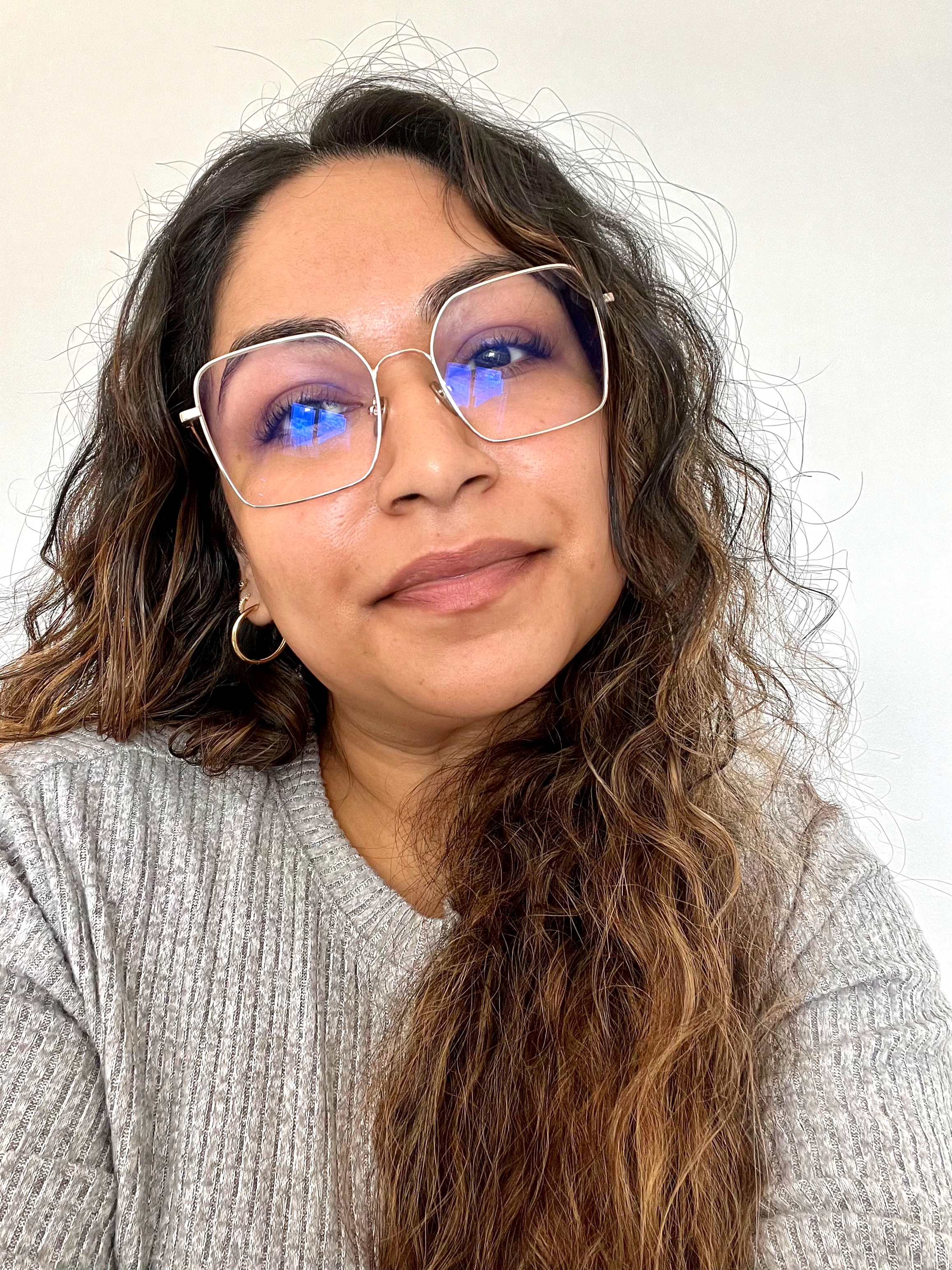
Aleesha was Deputy Editor and Beauty & Fashion Editor for My Imperfect Life, where she headed up the beauty, fashion and eCommerce pages. Previously she was Shopping Writer at woman&home and gained an AOP awards nomination after working on their news team. She earned an MA in Magazine Journalism from City, University of London in 2017 and has since worked with a number of brands including, Women's Health, Stylist and Goodto. When she’s not testing all the new beauty & lifestyle products on the market, Aleesha spends her time soaking up the newest bestsellers and Netflix releases, watching everything Marvel, learning about different wines, attempting new languages and traveling as much as she can.